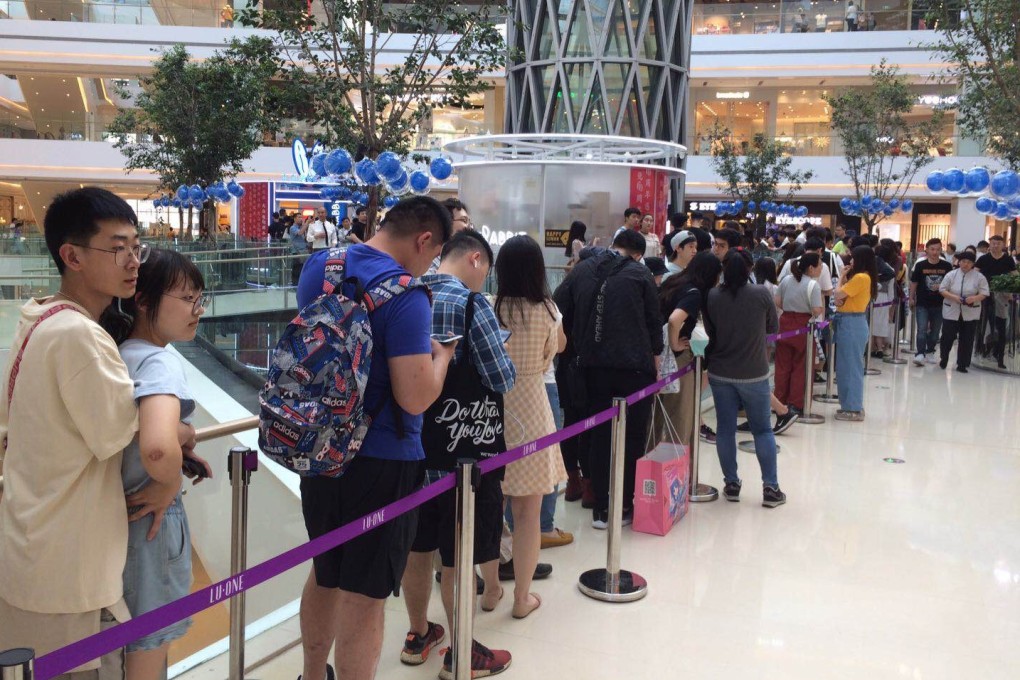White Rabbit milk tea sells at 2,000 per cent premium as Chinese consumers show support for local brands amid trade war
- Shanghai residents pay as much as 500 yuan for milk tea that normally sells for 19-23 yuan
- US-China trade war is presenting an opportunity for Chinese brands

At a time when more than US$300 billion dollars worth of Chinese exports to the United States face increased tariffs of 25 per cent, milk tea by storied Shanghai brand White Rabbit is selling at a premium of about 2,000 per cent – all in the name of national pride.
Residents are willing to pay as much as 500 yuan (US$72) for a taste of the milk tea, which normally sells for 19-23 yuan, in a black market that has sprung up around it.
Wang Xiaoliang, 40, spent about two hours queuing for a cup of White Rabbit milk tea with hundreds of other shoppers on Saturday afternoon.
“It is not about the taste,” he said. “We just want to show our support for local brands at a time when the US government is plotting to undermine China’s economic development.”
